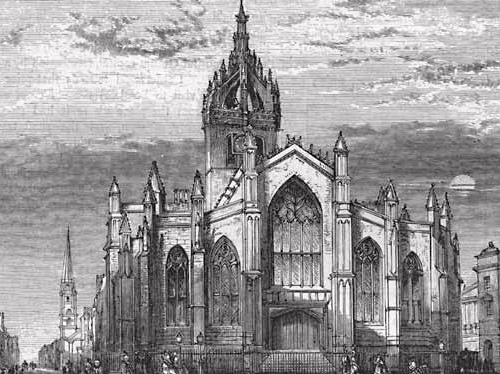Westminster Assembly and Related Works
James Dodson

Westminster Abbey, home of the Jerusalem Chamber.
WESTMINSTER ASSEMBLY AND RELATED DOCUMENTS HOMEPAGE.
“As truly as in the cases of the Nicene and Chalcedonian formularies, the Westminster Standards mark an epoch in the history of human reflection on the truths of the gospel—an epoch in the attainment and registry of doctrinal truth; and as truly in the one case as in the other the statements they give of the truths that fall in their sphere are scientifically final. All attempts at restatement must either repeat their definitions or fall away from the purity of their conceptions or the justness of their language.”—Benjamin B. Warfield, The Significance of the Westminster Standards as a Creed, (1897).
Works by and Related to the Work of the Westminster Assembly:
1644-Alexander Henderson.-A sermon detailing the great need and method of reforming both the church and the nation together with a dire warning to magistrates that will not be reformed.
1898-Benjamin B. Warfield (1851-1921).-In this Address, Warfield places the Westminster Standards in proper historical context and explains both the beauty and genius of its theological formulations.
1643-The Parliament.-An Act designed to gain a broader acceptance for the Solemn League and Covenant amongst the populace by commending its several ends as worthy of patronage.
1648-Ministers of the Province of Salop.-One of many testimonies issued around this time in support of the Solemn League and Covenant, it was signed by many English ministers who opposed the toleration and heresies of the various Independents and Sectaries of their day.
1648-London Ministers (many of whom were Westminster Divines).-A somewhat lengthy testimony against the numerous heresies and errors which were circulating contrary to the doctrine of the Westminster Confession making these against the Solemn League and Covenant.
1660-Anonymous.-Several reasons why the Parliament should be concerned to keep and uphold the various provisions of the Solemn League and Covenant.
1644-The Parliament.-This is the official Act for removing the Book of Common Prayer and establishing the use of the Westminster Directory for Public Worhsip throughout England and Wales.
1643-Westminster Assembly.-A petitioning of the Parliament for the calling of a day of fasting together with a list of reasons for such a solemn humiliation.
1647-Westminster Assembly.-A series of directives issued by the Westminster Assembly on how to conduct family worship complete with a list of things to do and things to avoid.
1648-The National Church of Scotland.-The assembly issues a warning to a careful keeping of the Solemn League and explains why it is dangerous to recede from this.
1647-The National Church of Scotland.-A declaration sent by the General Assembly of the Church of Scotland to their brethren encouraging them to keep the covenant and to put in practice the agreed church government.
1643-The Three Kingdoms of England, Scotland and Ireland.-This is both a political league and a religious covenant between the three nations for establishing a covenanted uniformity of religion together with providing a mutual defense.
1580-The National Church of Scotland.-This is the second Scottish confession, also called the National Covenant, or Negative Confession. To this is appended the acts of Parliament and additions made at the renewal, in 1638.
1647-Westminster Assembly.-This is the confession of faith containing the doctrinal formulations to be adopted as part of the uniformity in doctrine amongst the covenanted churches of Britain.
1645-Westminster Assembly.-The second finished production of the Assembly designed for covenanted uniformity, this contains a full account of the nature and function of Presbyterian church government.
1645-Westminster Assembly.-This is the directory given for attaining covenanted uniformity in the matter of the public worship of God. It includes directions for ordinary worship and those extraordinary times to be observed or ordered for the glory of God.















